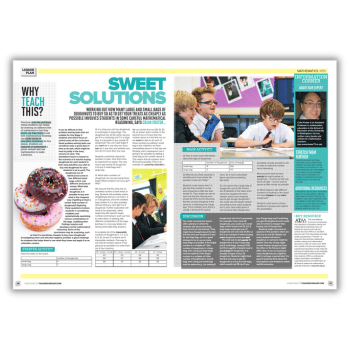This standalone maths reasoning KS3 lesson is based on the scenario of a teacher buying doughnuts for each student in their class (whether you wish to buy real doughnuts for your students is up to you!).
The doughnuts are all identical but come in two different-sized bags, which cost different amounts of money. What total numbers of doughnuts is it possible to buy and what is the cheapest way of getting at least a certain total number of doughnuts?
Maths reasoning KS3
Exploring these questions involves students in considering multiples and systematically examining various combinations of the bags. Justifying their findings requires and develops careful mathematical reasoning.
Some of the conclusions may be surprising, such as that it is sometimes cheaper to buy more doughnuts! Investigating when and why this happens provides a good challenge for students that helps them to use what they know and apply it to an unfamiliar context
Colin Foster is an Assistant Professor in mathematics education in the School of Education at the University of Nottingham. He has written many books and articles for mathematics teachers.
Browse more KS3 maths games and lesson ideas. We also have maths question worksheets for Year 7, Year 8, Year 9 and GCSE maths.











